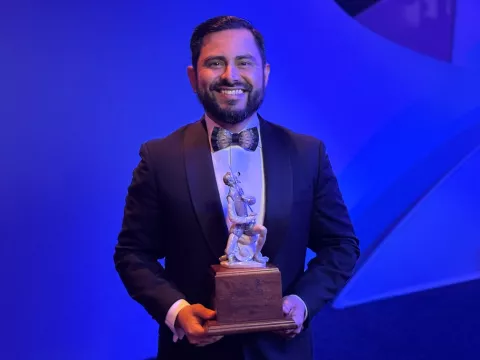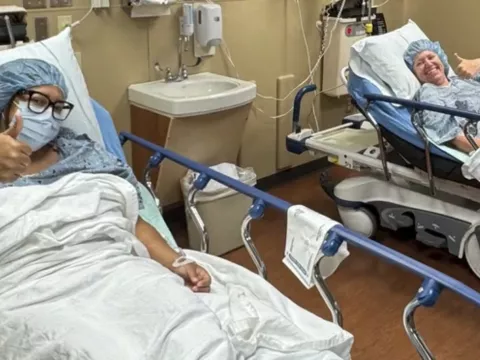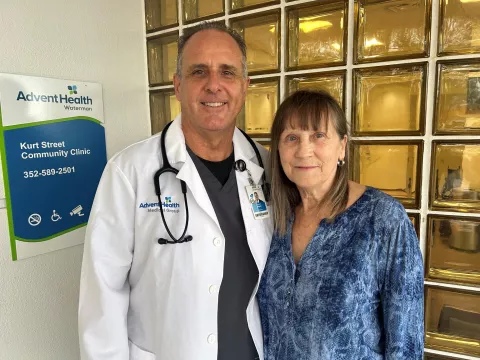- AdventHealth
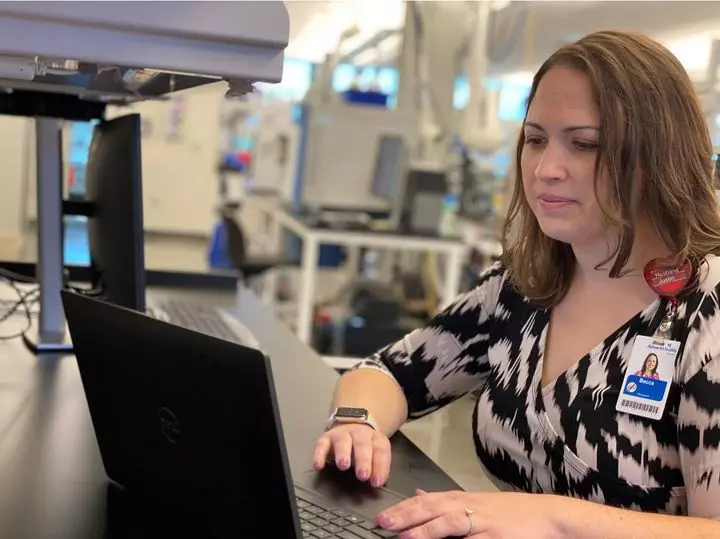
Bettina Thomas knows all too well the important role screening plays in the early detection of breast cancer. Her mother is a breast cancer survivor, and her younger sister recently died from the disease. That’s why, when the former AdventHealth team member saw the poster in a hospital lobby, she didn’t waste a moment in finding out more about the WholeMe genomics study, which launched in August 2019 and is now in its third phase with a focus entirely on breast cancer. Thomas said she had been unsuccessful in her attempts to get genetic screening for mutations in the BRCA (Breast Cancer) genes – the most well-known of the hereditary breast cancer genes that can be indicators of increased risk.
Thomas was a participant in phase 2 of the WholeMe study that included screening for other heart conditions besides familial hypercholesterolemia, which was the focus of phase 1, as well as hereditary cancers such as breast, ovarian and colon. After a first saliva test in August 2021 and a second one confirming what she had suspected – that she is at high risk for breast cancer -- Thomas said the process “gave me the insight and information I needed to take care of myself. Having a great doctor, early detection, a support system and a positive outlook are all vital in any journey with cancer.”
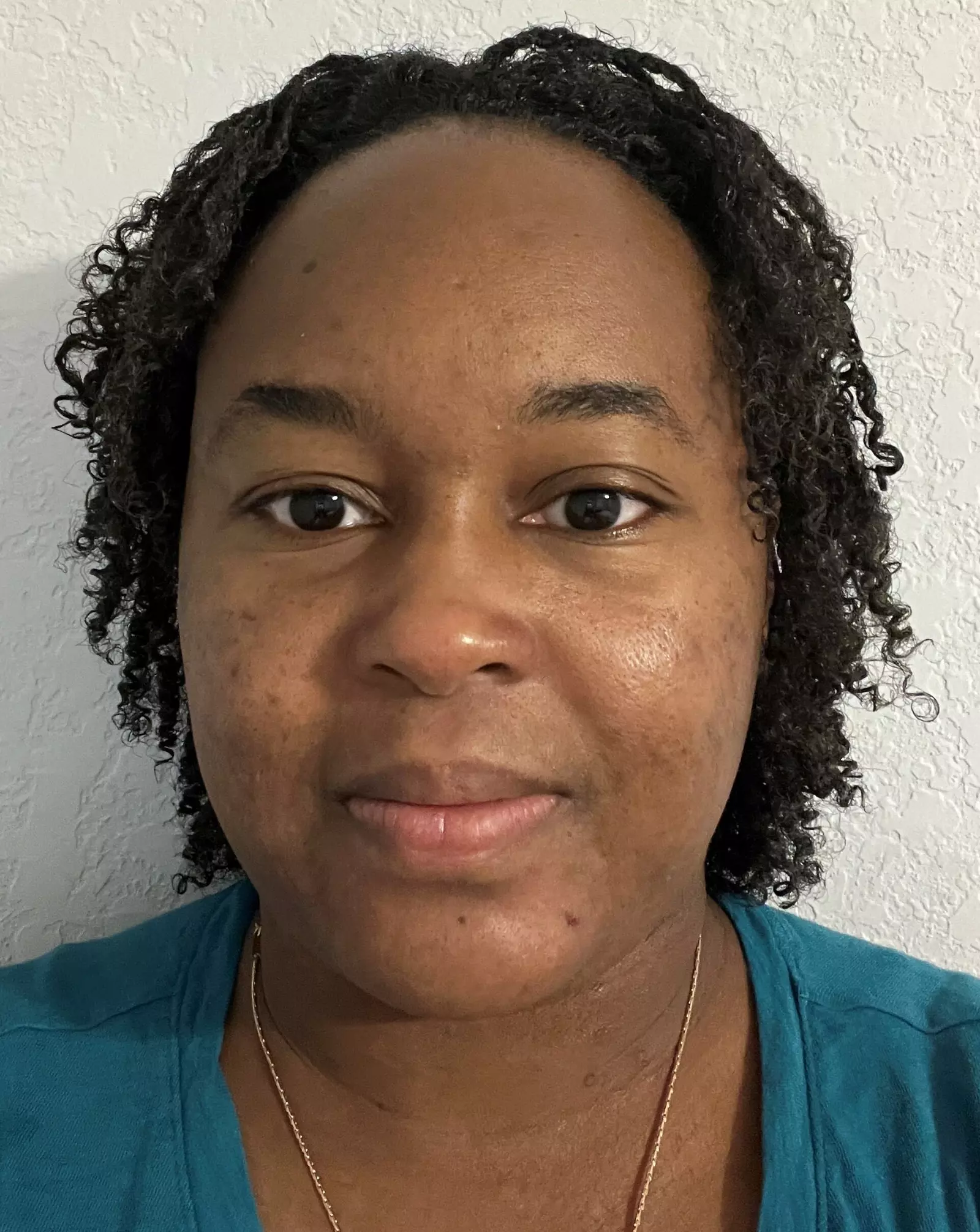
Thomas said she also learned that the timeframe of highest risk for her is between the ages of 40 and 50. She recently turned 40. Based on her WholeMe results, she now has a mammogram every six months, alternating with a breast MRI, and, once a year, an ovarian ultrasound and labs. Experiencing cancer in her family has been an emotional rollercoaster. That’s why, Thomas emphasized, “The whole point is I’m trying to keep from getting cancer and also inform others how important it is to get tested.”
For Rebecca Essner, PhD, senior research scientist at the AdventHealth Research Institute and AdventHealth Genomics and Personalized Health and principal investigator in the WholeMe study, Thomas’s outlook exemplifies what the study is all about. “It’s scary to find out that you have a higher propensity to develop different types of cancer or cardiovascular disease. But they can also think about, ‘now I know so I can actually help prevent that from occurring by taking measures now.’” Dr. Essner noted that about 40 women and men were identified as at-risk in the phase 2 study that included Thomas, and most went on to receive individualized counseling based on their specific genetic risks and follow-up care.
Study participants also receive information about ancestry and other traits, such as having a sweet tooth or an aversion to cilantro, but beyond those insights, genetic testing can help with early prevention, “not just for you but for your children and your children’s children,” Dr. Essner said.
"We want genetic testing to be seen in the same light as other preventive screening measures, like mammography."
Only 25% of participants in a recent AdventHealth survey said they would consider genetic screening along with their mammogram. Of those, 49% said they would like more information about what the screening would show and what the results potentially could mean. Another 43% said they would like access to that knowledge, while 8% said they had already undergone genetic screening and considered the knowledge gained an important part of their health care.
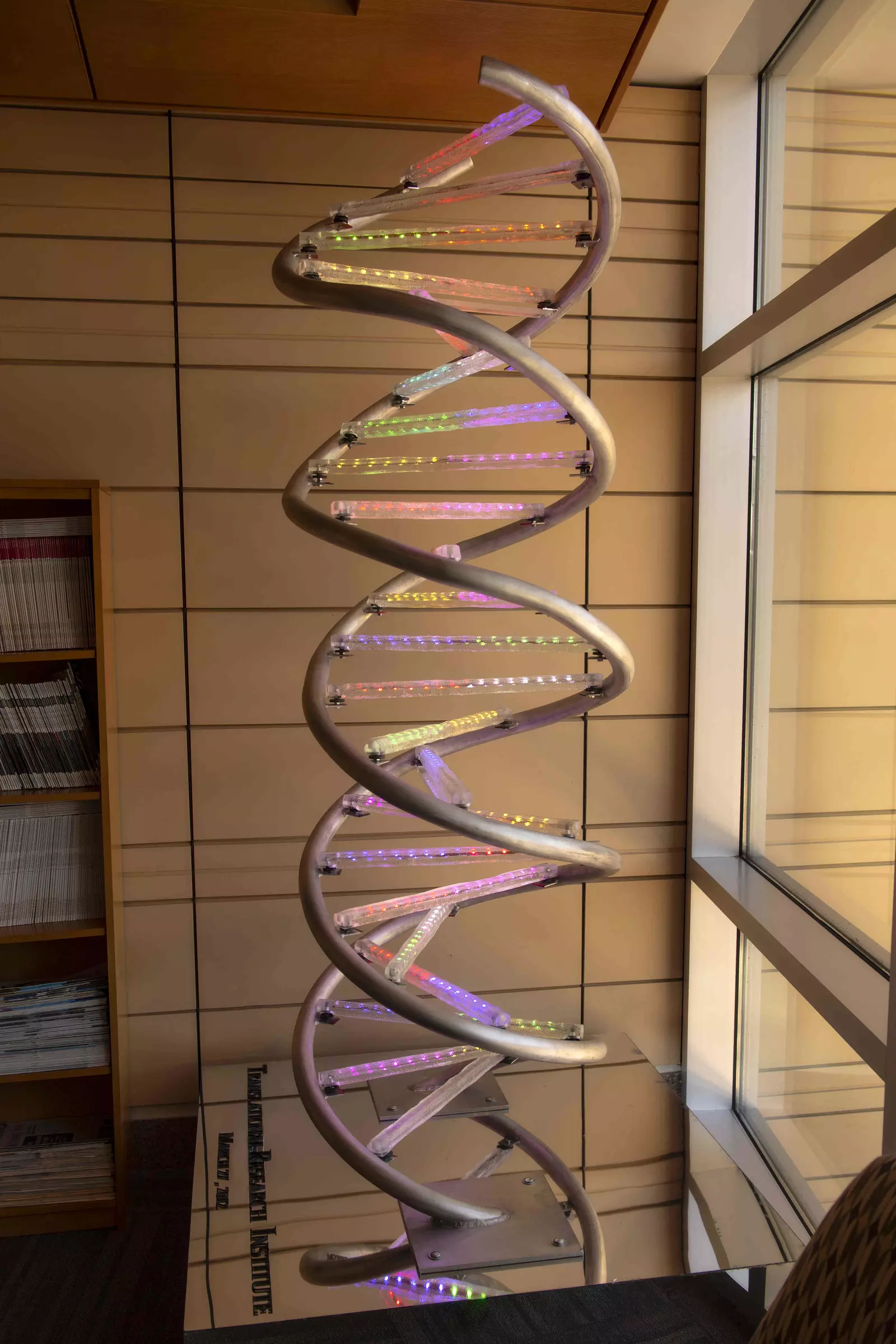
When the initial phase of the WholeMe study got underway three years ago, people were “coming in droves” to participate, Dr. Essner said. Then came COVID-19 and recruitment efforts were temporarily halted. The study resumed enrollment in November 2020 and phase 2 began in June 2021. The goal of enrolling 1,800 women who are at moderate risk and can receive genetic testing at no cost to them as part of the latest phase is proving to be a bit of a challenge, Dr. Essner said. Participation ends for those determined to be at low or high risk based on their assessment. More than two-thirds of those who have enrolled so far have been in the high-risk category and are referred to the AdventHealth genomics clinic for additional screening and/or testing.
It is possible, Dr. Essner said, that lingering COVID-19 fears or just a general preoccupation with other life matters may be keeping some from enrolling in a study. Other reasons given by survey respondents who said they would not consider genetic screening included “I don’t believe genetic information is necessary for my health care” (34%) and “I would be too nervous that the genetic screening would reveal upsetting information (14%).”
Because of the information she gleaned from participating in the study, Thomas said she believes in sharing her story to help support the research and underscore the importance of early detection. For those who might shy away from genetic testing, Thomas said, “If you’d rather not get tested for genetic mutations, then please get screened annually and do self-exams regularly.”
Through the end of the year, WholeMe screenings are at AdventHealth Imaging Center Princeton and AdventHealth Kissimmee. Dr. Essner said the hope is that a broader selection of sites will be available as the third phase continues into the new year. In addition, she said, “We’re always looking for ways we can incorporate genomics into both the population health and preventive spaces. We want genetic testing to be seen in the same light as other preventive screening measures, like mammography.”
Click here to learn more about WholeMe genomic testing and to find answers to frequently asked questions.
Recent News
Three Kings Day reminds us of the beauty of tradition, faith and the joy of giving, honoring the journey of the Wise Men. Watch a special video message from Sheila Rankin, CEO of AdventHealth...
Dr. Joseph Lopez, chief of pediatric head and neck surgery at AdventHealth for Children, was honored with the prestigious Professional of the Year Award at the 27th Annual Don Quijote Awards.
Giving back to his hometown, Dr. Ryan Day brings advanced robotic surgery to local patients, offering life-saving care close to home.
Transplant is AdventHealth Transplant Institute’s 5000th kidney transplant
David Weis has been promoted to serve as president/CEO for the region covering east Volusia, Flagler and St. Johns counties. Lorenzo Brown has been promoted to serve as president/CEO for the region...
For Franco and Felix Valverde, growing up as identical twins meant more than just sharing a birthday—it meant sharing an unshakable bond.
For Franco and Felix Valverde, growing up as identical twins meant more than just sharing a birthday—it meant sharing an unshakable bond. Their connection is evident in the way they look at each other...
AdventHealth is now using a fluorescent dye that lights up cancer cells during surgery, which is providing faster, more accurate treatment for patients.
At 62 years old, Rudolph had never dealt with chronic medical conditions or taken routine medications. But when her symptoms persisted, she found herself making a few trips to the emergency department...
Nestled in Eustis, Fla., AdventHealth’s clinic provides free health care services to uninsured adults who qualify in North Lake County. With the support of clinical volunteers, the clinic treats...
The Ahn family’s life was turned upside down when their 5-year-old daughter suddenly started having 30 seizures a day. She had FIRES Syndrome, a one-in-a-million and potentially fatal diagnosis.
On Dec. 13, MarComm team members who are fans of Taylor Swift, aka Swifties, handcrafted over 100 friendship bracelets for moms at AdventHealth for Women whose babies made their debut on Taylor's...


